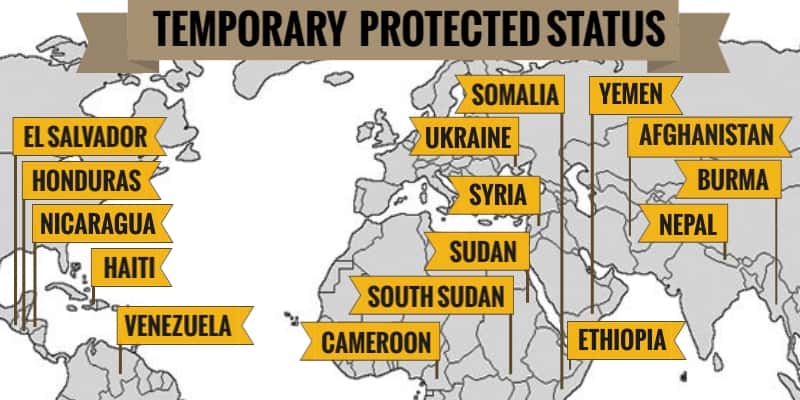Which Countries Are Protected Under Temporary Protected Status?

The Secretary of Homeland Security (Secretary) grants Temporary Protected Status (TPS) to eligible foreign-born people who cannot return home safely due to circumstances or conditions that prevent their country from suitably handling the return. If you are applying for a Temporary Protected Status, you should speak to an immigration lawyer in NY immediately.
What is Temporary Protected Status?
People entering the United States from certain countries may be granted Temporary Protected Status (TPS) if deportation to their home country would endanger their security. It is granted when the person’s home country is going through difficulties or conflicts that make returning unjustifiable or when the person’s well-being and safety are directly affected.
TPS recipients are protected from deportation, have employment authorization (via an Employment Authorization Document), and are eligible to apply for travel authorization abroad (Application for Travel Document, Form I-131). Approximately 411,000 TPS recipients were living in the United States as of 2020.
What are the benefits of Temporary Protected Status?
TPS holders are entitled to the following:
- They are not deportable from the United States and cannot be detained by DHS because of their immigration status.
- They can sign up for employment authorization documents (EAD).
- They qualify for travel authorization.
How is Temporary Protected Status determined?
The Secretary of Homeland Security can grant or deny TPS to any country. In creating a designation for a country, or even a portion of a country, DHS must consult with other federal agencies, such as the Departments of State, Defense, and Justice. If a country meets one or more of the following criteria, it is eligible for TPS consideration:
- An ongoing armed conflict, such as internationalized (civil war) and non-international armed conflict with stateless bad actors.
- Natural calamities. Tsunamis, earthquakes, and epidemics are examples of natural disasters that cause severe disruption to live conditions. Often, infrastructure has been so disrupted that returning the person to their home country is difficult.
- Conditions that are unusual and temporary. Suppose the safety and security of someone seeking to enter the United States would be jeopardized if they returned to their country of origin due to issues not covered by the first two conditions, with the caveat that if the appropriate US government agency determines that allowing people to stay is contrary to US national interest.
Seek professional legal help today.
If you are applying for a Temporary Protected Status, you need the best kind of legal help on your side. You should talk to a legal expert without wasting any time. An experienced immigration attorney can help you with the process and give you valuable legal advice.
